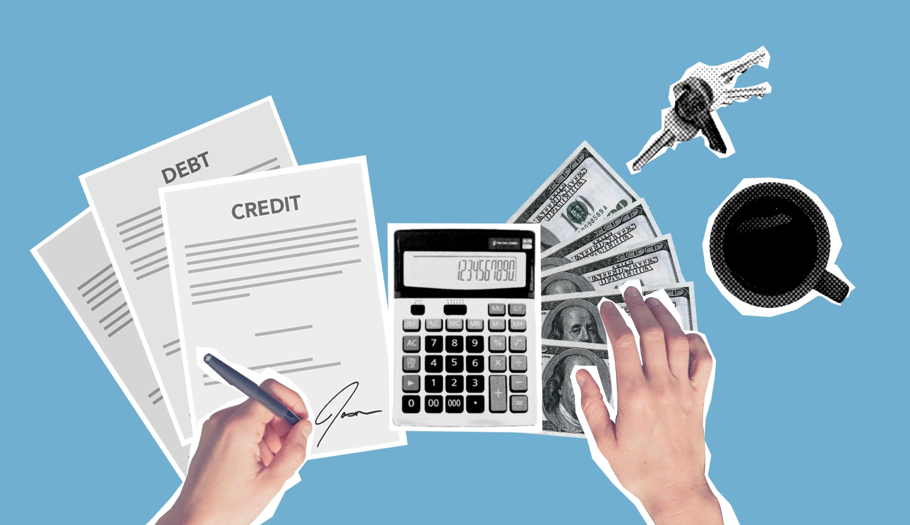
Loans are a type of credit that are used to finance a variety of expenses, including large purchases, unexpected expenses, and debt consolidation. Loans can be secured or unsecured, depending on the specific loan, and they typically have a repayment period, during which the borrower is required to repay the loan, plus interest, over time.
The process of obtaining a loan typically begins with the borrower identifying their need for funds, and researching their loan options. This may involve comparing interest rates, repayment periods, and other loan terms from multiple lenders, to find the best deal.
Once the borrower has selected a lender and a loan, they will typically be required to complete a loan application, which will include information about their financial situation, employment history, and credit history. The lender will then use this information to determine whether the borrower is eligible for a loan, and, if so, how much they are eligible to receive.
If the loan is approved, the lender will disburse the funds to the borrower, and the borrower will begin making payments according to the loan terms. These payments may be made monthly, bi-weekly, or other intervals, and they will typically include both principal and interest.
The interest rate on the loan is the cost of borrowing the money, and it is expressed as a percentage of the loan amount. Interest rates can be fixed or adjustable, depending on the specific loan, and they will impact the overall cost of the loan, as well as the monthly payments.
The repayment period is the length of time that the borrower has to repay the loan, and it can range from one year to several decades, depending on the specific loan. The repayment period will impact the monthly payments, as well as the overall cost of the loan.
Secured loans are backed by collateral, such as a car or a home, and they typically have lower interest rates than unsecured loans. If the borrower is unable to make their payments, the lender can seize the collateral and sell it to repay the loan.
Unsecured loans, such as personal loans, do not require collateral, but they typically have higher interest rates than secured loans. The risk of default is higher for unsecured loans, as the lender has no collateral to fall back on if the borrower is unable to make their payments.
It is important to carefully consider the terms of the loan, including the interest rate, repayment period, and any fees or penalties associated with the loan, before accepting a loan offer. Additionally, it is important to make sure that you are able to meet the loan payments over the life of the loan, and that the loan will not interfere with your ability to achieve your financial goals.
Additionally, it is important to keep in mind that loans can impact your credit score, both positively and negatively. On the one hand, making timely loan payments can help to improve your credit score, which can make it easier to obtain future loans and credit cards, and can result in lower interest rates. On the other hand, missing loan payments, or defaulting on a loan, can have a negative impact on your credit score, which can make it more difficult to obtain credit in the future.
It is also important to be mindful of any potential scams or fraudulent lenders. There are many fraudulent lenders who offer loans with high interest rates, hidden fees, and unfavorable terms, and who may take advantage of borrowers who are in need of funds. To protect yourself from these types of scams, it is important to work with a reputable lender, to carefully review the terms of the loan, and to make sure that the lender is legitimate.
Another important consideration is the impact of interest rates on the cost of the loan. Interest rates can have a significant impact on the overall cost of the loan, as well as the monthly payments. For example, a loan with a lower interest rate will typically have a lower overall cost and lower monthly payments than a loan with a higher interest rate.
It is also important to consider the impact of the loan on your overall financial situation. Taking out a loan can provide you with the funds you need to achieve your financial goals, but it can also result in additional debt, which can impact your financial future. It is important to carefully consider the terms of the loan, to make sure that it is affordable and manageable over the long-term, and to make sure that it will not interfere with your ability to achieve your financial goals.
It is also important to have a clear understanding of the loan terms and conditions, including the interest rate, repayment period, and any fees or penalties associated with the loan. Some loans may have prepayment penalties, which means that you will be charged a fee if you pay off the loan early. Other loans may have late payment fees, which means that you will be charged a fee if you miss a payment. It is important to understand these terms and conditions before accepting a loan offer, to make sure that the loan is affordable and manageable for your budget.
Another important consideration is the type of interest rate associated with the loan. Fixed interest rates remain the same throughout the life of the loan, which can make it easier to budget for the monthly payments. Adjustable interest rates, on the other hand, can change over time, which can result in higher monthly payments if interest rates rise.
In conclusion, loans are a type of credit that are used to finance a variety of expenses, and they work by providing the borrower with the funds they need, in exchange for a repayment period and interest. The process of obtaining a loan typically involves selecting a lender and a loan, completing a loan application, and making payments according to the loan terms. It is important to carefully consider the terms of the loan, to make sure that it meets your needs and is affordable for your budget, and to make sure that you are able to make the payments over the life of the loan. Whether you are looking to finance a large purchase, pay for unexpected expenses, or consolidate debt, a loan can be a valuable tool for improving your financial future, if used responsibly.
Read related article on link below:
https://www.investopedia.com/terms/l/loan.asp
